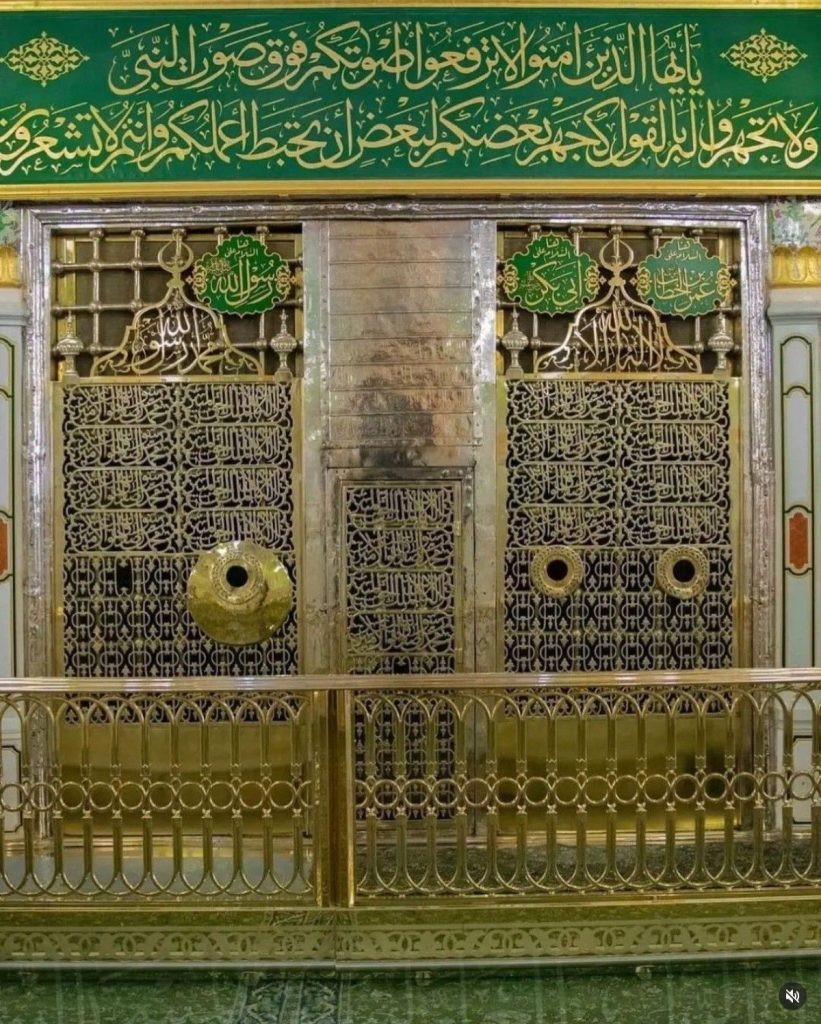by Muhammad Mohsin Iqbal
From the blessed birth of the Holy Prophet Muhammad (Peace and Blessings of Allah be upon him) in the sacred city of Makkah in 570 until his departure from this transient world in Madinah in 632, the story of his journeys is not merely a tale of travel, but an unfolding of divine wisdom, purpose, and destiny. Every journey he undertook was not out of worldly ambition, but as part of a greater design, shaping him for the role of the Last Messenger to mankind. The Qur’an itself bears testimony: “And We have not sent you, [O Muhammad], except as a mercy to the worlds” (21:107).
The earliest known journey of the Prophet was in his infancy, when his mother Hazrat Bibi Amina took him to (Dar al-Nabighah, Yathrib) Madinah to visit the grave of his father, Hazrat Abdullah, who had passed away before his birth. On their return, his mother too departed from this world, leaving the young child orphaned. This journey imprinted upon him from an early age the frailty of human life, preparing his tender heart for the trials to come.

During his boyhood, he accompanied his grandfather Hazrat Abdul Muttalib and later his uncle Hazrat Abu Talib on trade caravans. At the age of twelve, he traveled to Bosra in Syria with Abu Talib. There, a Christian monk, Bahira, is reported to have recognized signs of prophethood in him, cautioning Hazrat Abu Talib to protect the boy from the enmity of outsiders. This journey to Syria was not only a worldly experience but also a silent indication that the young boy’s destiny was unlike any other, for his mission was to transcend boundaries and nations.
In his youth, he made further commercial journeys, most prominently in the service of the noble lady Hazrat Bibi Khadijah (May Allah be pleased with her). It was during a caravan expedition to Syria that his honesty, integrity, and remarkable conduct impressed her so deeply that she later sought his hand in marriage. His journeys for trade thus became a foundation for his worldly repute as “Al-Amin”—the trustworthy—whose character was as flawless in business as in private life.
These travels carried immense wisdom. They acquainted him with the cultures, faiths, and practices of other peoples—Christians, Jews, Zoroastrians—and gave him insight into the moral decline of societies beyond Arabia. This exposure would later sharpen his awareness of the universal nature of his message. As the Qur’an states: “Say, [O Muhammad], O mankind, indeed I am the Messenger of Allah to you all” (7:158).
After the declaration of his prophethood at the age of forty, the nature of his journeys changed from commercial to spiritual, political, and missionary. The first of these was his visit to Ta’if, where he sought support after facing relentless persecution in Makkah. Though met with hostility and cruelty, his supplication there revealed his unmatched patience and reliance on Allah. He prayed: “If You are not displeased with me, then I do not mind.” This journey to Ta’if, though painful, became a lesson in steadfastness and mercy.
The most miraculous of his journeys was the Isra and Mi’raj, when Allah, by His command, took His beloved Prophet from Makkah to Jerusalem and then to the heavens in a single night. The Qur’an declares: “Exalted is He who took His Servant by night from al-Masjid al-Haram to al-Masjid al-Aqsa, whose surroundings We have blessed, to show him of Our signs. Indeed, He is the Hearing, the Seeing” (17:1). This journey was a celestial gift, bestowing upon the Prophet direct communion with the Divine and the command of five daily prayers, the spiritual anchor for his followers.
The most defining journey in his earthly mission was the Hijrah—the migration from Makkah to Madinah in 622. It was not flight but strategy, not despair but the dawn of triumph. In Madinah, he established the first Islamic polity, uniting tribes and communities under the Charter of Madinah. The Qur’an consoles him during this decisive moment: “If you do not aid him—Allah has already aided him when those who disbelieved had driven him out, [and] he was one of two in the cave when he said to his companion, ‘Do not grieve; indeed Allah is with us’” (9:40). The Hijrah thus marked the transformation of Islam from a persecuted creed to a rising civilization.
Throughout his prophetic mission, he journeyed to various places around Arabia—Badr, Uhud, Khandaq, Hudaybiyyah, Khaybar, Hunayn, Tabuk—sometimes for defense, sometimes for peace treaties, and at other times for calling people to Islam. Each of these journeys was necessitated by circumstances; the defense of the nascent Muslim community, the establishment of just order, or the fulfillment of treaties. Yet in every instance, his conduct displayed magnanimity, justice, and mercy, even towards enemies.
The final journey of the Prophet (Peace Be Upon Him) was to Makkah in 632 for the Farewell Pilgrimage. Here, standing before the vast multitude of his followers, he proclaimed the completion of his mission: “This day I have perfected for you your religion and completed My favor upon you and have approved for you Islam as your religion” (5:3). Soon after, he returned to Madinah, where he departed from this world, leaving behind not just a city or a people, but an Ummah that carried the light of his message to the corners of the earth.
Thus, the journeys of Prophet Muhammad (PeaceBe Upon Him) were never aimless. They were steps in the unfolding of divine decree, each imbued with wisdom, shaping him to be the universal guide for mankind. From the markets of Syria to the orchards of Ta’if, from the Cave of Thawr to the heights of Sidrat al-Muntaha, every path he tread was marked by sacrifice, patience, and mercy. His journeys were the journeys of truth itself—truth that conquered hearts not by the sword, but by the power of character, compassion, and the Word of Allah.

















